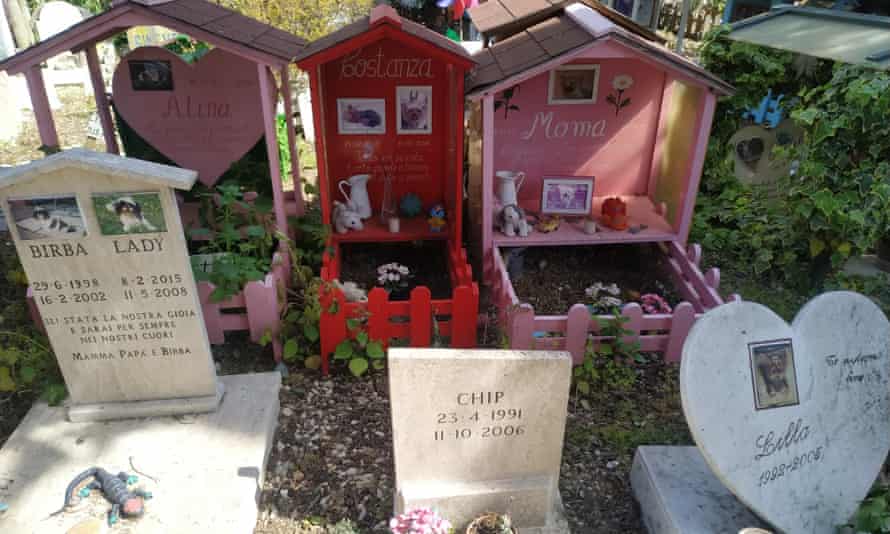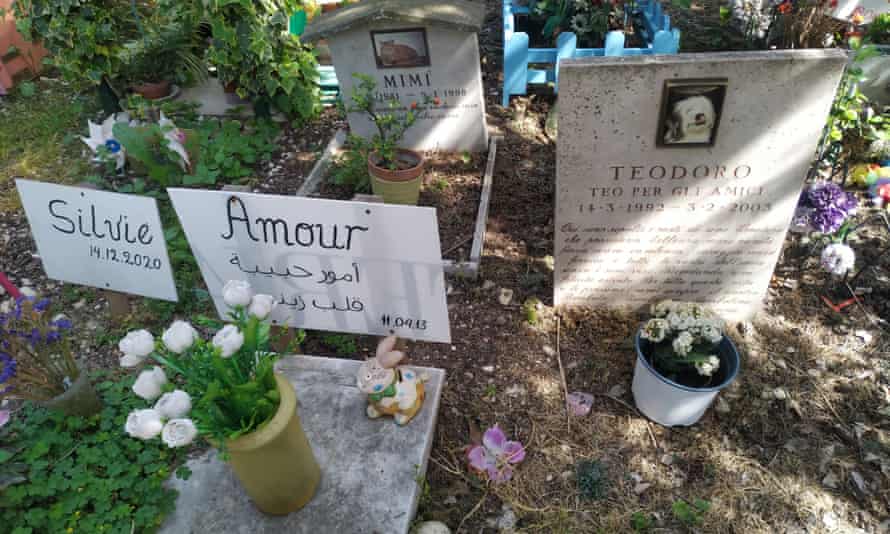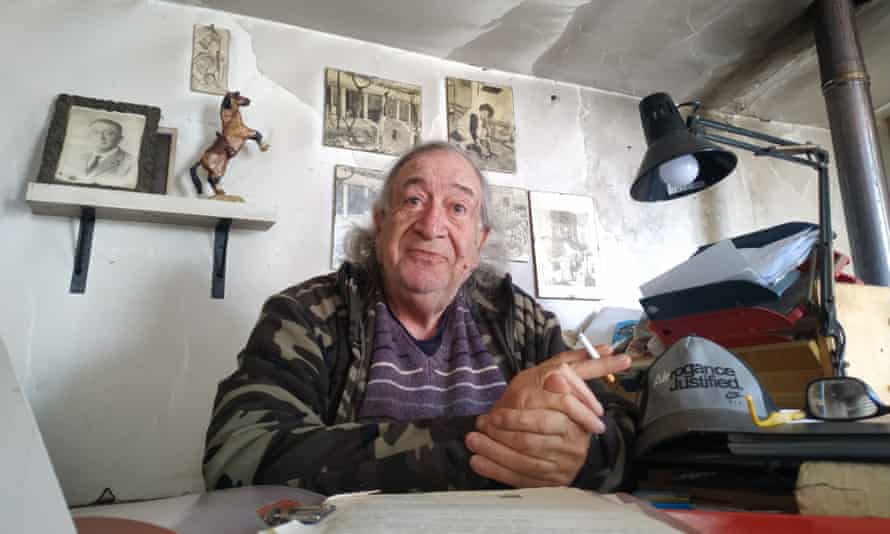The first animal to be buried in an elaborate grave at Casa Rosa, Italy’s oldest pet cemetery, was a beloved chicken belonging to the sons of fascist dictator Benito Mussolini.
News of its existence spread quickly among Italy’s elite, and soon after the cemetery housed the remains of cats and dogs belonging to former members of the country’s royal family and a variety of other pets. VIP company, including hamsters, rabbits, pigeons and lions owned by politicians. magistrates and filmmakers.
French actress Brigitte Bardot, who was in Rome in the 1950s to film Il Disprezzo (Contempt), also left her resting dog, Michael, at Casa Rosa, tucked away in a quiet spot in the Italian capital’s Portuense district .
Today, the cemetery houses around 1,000 graves, each with headstones bearing a picture of the animal, tender inscriptions and surrounded by flowers, figurines or teddy bears. As demand for a dignified resting place for pets grows, authorities in Rome’s administrative region of Lazio are looking to replicate it.
Casa Rosa was founded by Antonio Molon – a vet who cared for Mussolini’s Great Danes – in 1922, the year the dictator took power. The cemetery, a plot next to the Molon family home, is now managed by his son, Luigi.

“At the time, we sold colored chicks at trade fairs, it was an old custom,” says Luigi Molon. “There were these three chicks [that Mussolini bought], two died instantly and one became the playmate of his sons. After a while she died too and Mussolini, knowing that my father had land, asked if the chicken could be buried there – a place where his sons could visit, leave a flower and remember the times. happy.
Although cemeteries related to Casa Rosa exist in other parts of Italy, in Lazio there is no specific law authorizing them. Casa Rosa operates thanks to a license granted by the City Council of Rome, last renewed in 1984, and because it has land suitable for the burial of animals. So unless a pet owner has land, say a backyard, deemed suitable, they have no choice but to have the animal cremated.
“For example, if there’s an underground aquifer, you can’t bury your animals because you’ll pollute everything,” Molon said. “We are the only ones with a license.”
Some of those who miss a coveted place for their pets in Casa Rosa end up looking for burial grounds beyond Lazio.
But that could be about to change. Regional politicians from the Five Star Movement are working on a proposal that would allow the creation of dedicated cemeteries for the burial of pets. The aim is to ensure respectable burials while ensuring that animals are buried in a safe and controlled manner.

“This means that animal remains will no longer be disposed of as waste, reducing the risk of polluting aquifers from unauthorized burials and spreading disease if remains are discarded in trash bins,” the authorities said. politicians in a statement. “It would be a civilized law, the one we owe to ourselves and, above all, to our four-legged friends so as not to break the bond that has been created in life.”
Molon said the law was needed, adding that he was overwhelmed with demand, mostly from the well-heeled faction of Lazio society.
“They’re in a lot of pain and have no concept of time, sometimes calling at 2am, but what can I do? I can’t pick up the dog at that time,” he said. Some people live alone and before you might have put such a strong bond with an animal in that, but these days pets really are an important part of a family.”
Typically, Casa Rosa burial plots are leased for five years, although many pet owners choose to renew, visiting regularly to tend to the grave and leave flowers.
“Some come every day,” Molon said. “It’s like walking their pet.”

Greta, a lioness, has been there since 1988. Nearby is Duchessa, a female cat who died in 2008. On her gravestone is a message that reads, “In our hearts and minds forever.” The most opulent grave belongs to Dreys, a dog whose remains are covered in a black marble burial register that cost €12,000, while perhaps the most unusual animal buried at Casa Rosa is a turtle called Ruga.
Molon said Mussolini’s granddaughter Alessandra visited the cemetery until a few years ago, even though the chicken plot is no longer there.
While Molon, who has two dogs, fully understands the affection owners have for their pets, he acknowledges that some of his clients may be “a bit extreme”.
“They don’t know the difference between reality and fantasy…they’d rather talk to a dog than a human because the dog isn’t responding.”
He says he is passionate about his profession, even if some “turn their backs on it”. “I love animals… but I also love people.”

